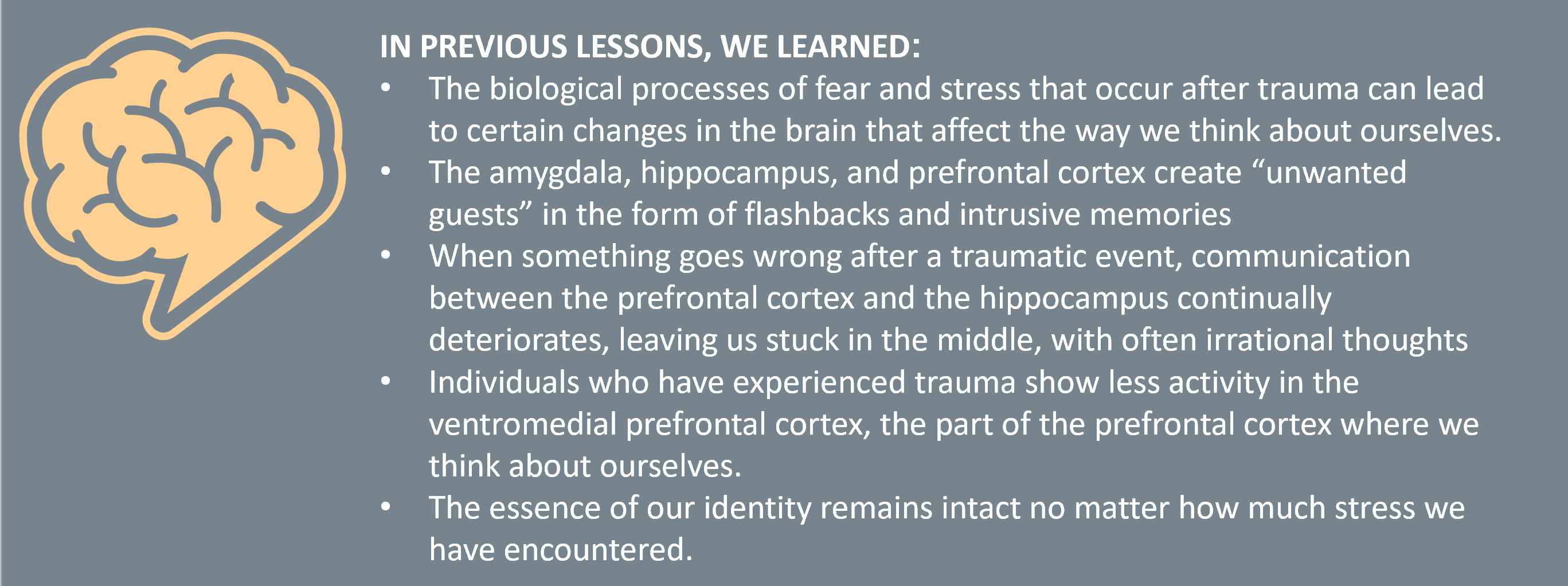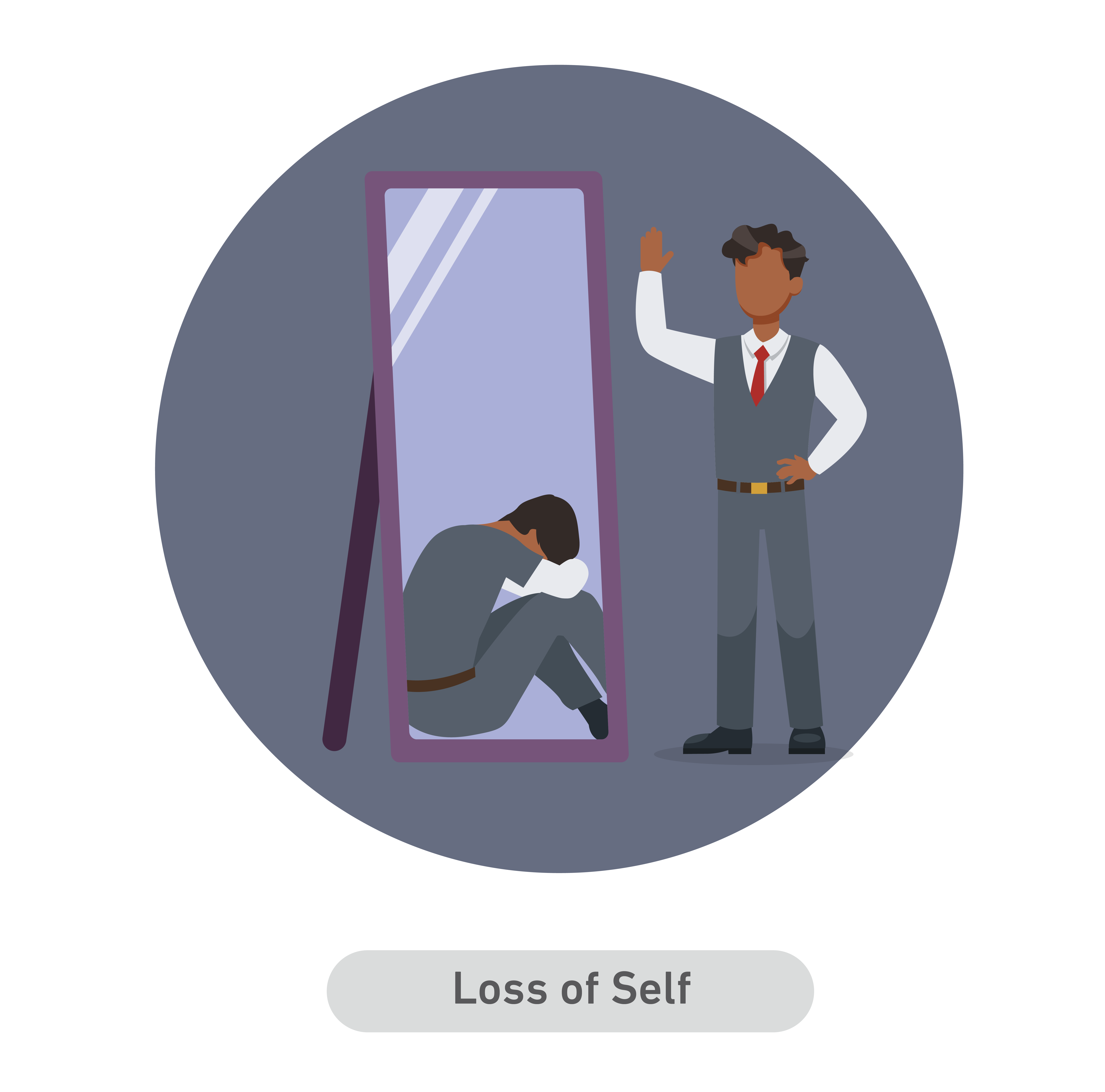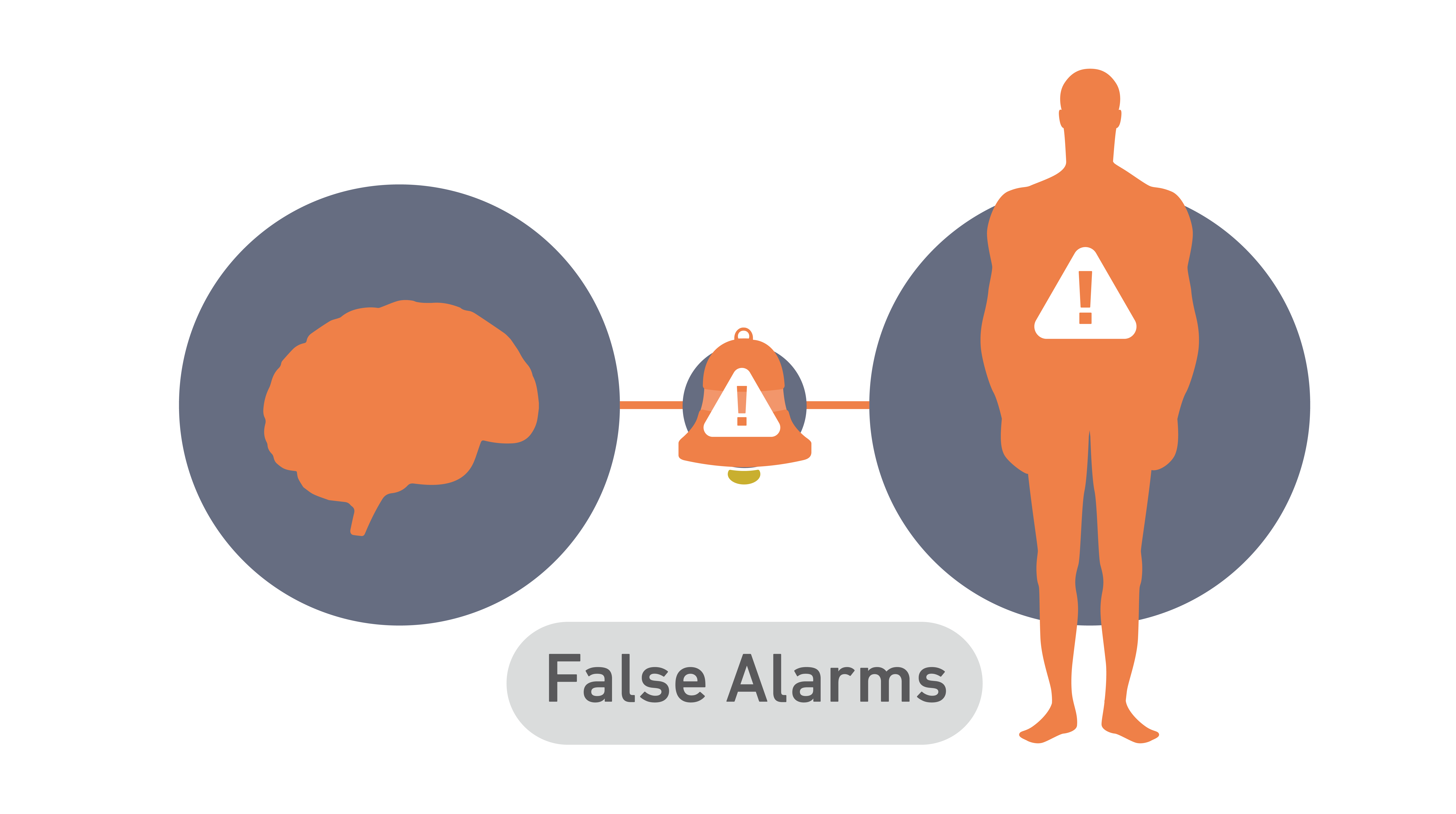
Lesson objective:
In this lesson, we learn about disassociation and the forms that it takes.
As stress increases, the brain and body adapt to keep you alive. Many of the changes that follow may not be welcome or comfortable. Many of the changes will be emotionally painful, even scary.
Trauma can attack the core of who you are. How you see yourself, how you feel about yourself, how you talk to yourself.
Chronic lack of safety forces you to avoid your own feelings–both emotional and physical. It may force you into what some call “a war with yourself,” where part of you wants to give in to the pain, to acknowledge and feel and battle, and another part of you stays hiding, burying any and all feelings as deep as possible to avoid more hurt.
As stress increases and the effects of trauma settle in, multiple systems operate “on high” for long periods of time. Your entire body prioritizes survival above all else. You may feel a loss of control, a sense of dislocation from your physical self, from your core being.
Thoughts change. 
Thoughts race. Flashbacks may be common, and nightmares may be even a nightly occurrence.
Together, these cognitive changes come together with the physiological changes discussed earlier to contribute to a frequent feeling of dissociation, which is a feeling of disconnection from your physical or psychological self.
Dissociation may be felt in many different ways.
There are countless ways to characterize and think about the dissociation experienced during chronic stress or after trauma.
In some ways, dissociation is a disruption between the rider and the elephant.
Between what you feel and what you know
Between your actual reactions and your desired reactions
Between your outer and inner self
Between your heart and your head
Between your brain and your body
Between your mood and your external environment
Each of these characterizations are unique and true, reflecting the multiple ways in which hyperarousal, hypervigilance, changes in thoughts, and physiological changes in the body and brain promote a feeling of dissociation.
This is a normal response. It is part of how your body adapts to stress.
It’s particularly important to note that chronic stress and trauma can cause us to lose our interoceptive awareness as well, or to lose trust in our bodily feelings, which naturally contributes to a feeling of dissociation and dysregulation.
In its aftermath, trauma fills the world with false alarms, inappropriate responses, and sensations incongruent to reality. As such, it is easy to lose trust in signals from your body. Before the stress or trauma, signals from the body as part of the interoceptive and predictive cycles were often accurate.
Thoughts were more in control. Your body was more in your control. After trauma, however, the brain and body may respond to false alarms of imagined scenarios. In an attempt to cope, you may ignore those false alarms, those bodily sensations. And over time, you learn to ignore your body entirely, feeling constantly displaced, not at home even in your own body.